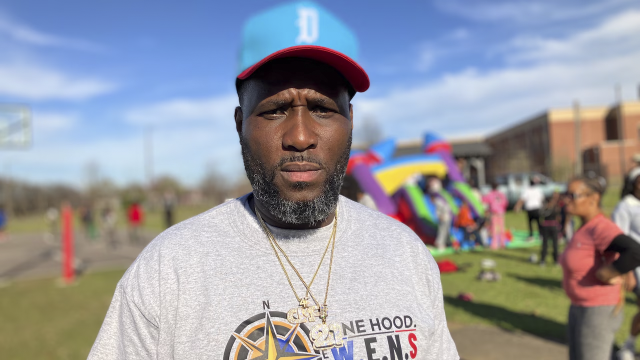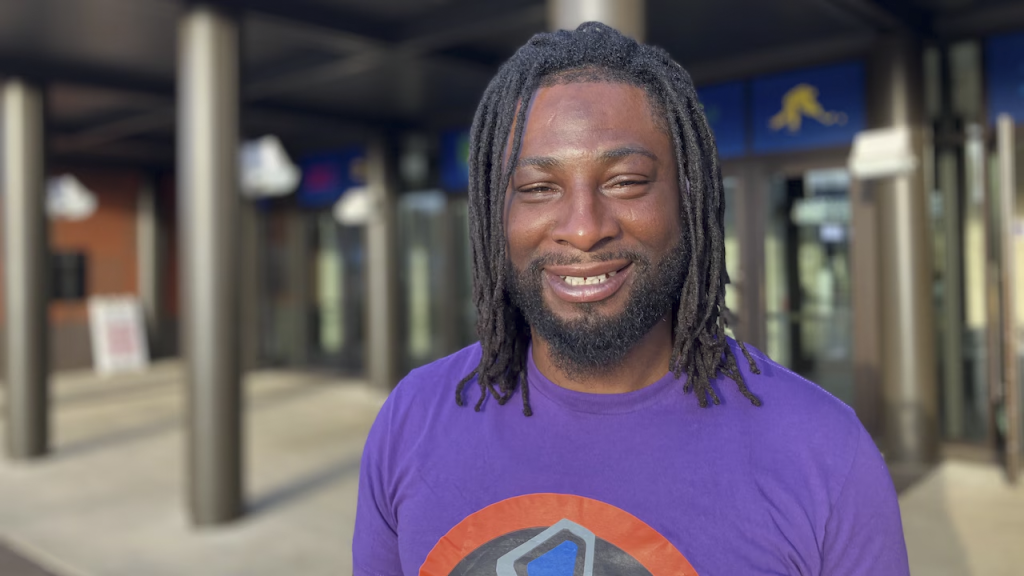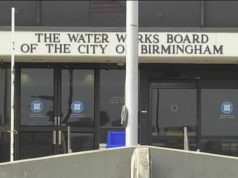
By Alaina Bookman | abookman@al.com
AL.com’s “Beyond the Violence” project, in partnership with The Birmingham Times, examines whether Birmingham can grow beyond its crime problem and become safer, healthier and happier.
After once falling prey to the “street life,” Jacobie Williams, 36, is now helping Birmingham fight the violence he grew up around by bringing national solutions back home.
Williams works with One Hood, a violence intervention organization with the goal of stopping the cycles of violence in the Magic City. One Hood, which helped reduce homicides in Newark, NJ, employs “credible messengers,” people who are justice-impacted or have experienced violence.
The organization aims to heal communities through conflict resolution, trauma recovery and life skills development. To combat crime, advocates say community members from all walks of life have to do their part.
“I do this work because I come from it. I understand it…I wish somebody had done this for me when I was out here, I probably would have made better choices,” Williams told AL.com.
In 2022, there were 50 homicides and 187 non-fatal shooting incidents in Newark. In 2023, when One Hood was launched, there were 48 murders in Newark. That decreased to a historic low of 37 murders in 2024, a 23% decline, according to the Newark Department of Public Safety. Homicides in Newark have not been that low since the 1940s.
Newark officials credited partnerships with community agencies and social services groups in helping ward off crime.
“This year we made considerable investments in our community-based violence intervention partners which resulted in a 50% increase in mediations of conflicts, along with therapeutic services and crisis intervention,” Newark Mayor Ras Baraka said at the 2024 State of the City Address.
Birmingham ended 2024 with 152 homicides, the highest number of killings in the city in nearly a century.
In December, the city of Birmingham approved $700,000 to implement One Hood. City officials will measure One Hood’s effectiveness by tracking community engagement with the program.Members of One Hood said that while stopping the violence will not be easy, they believe Williams is the perfect person for the job.
Jacobie Williams’ story: ‘Give back to my community’
Williams grew up in the Ensley neighborhood with six siblings and a single mom. They lived in the former Tuxedo Court public housing community, known as “The Brickyard.”
He said he wanted to escape from the neighborhood where he saw drug dealing, poverty and violence.
After graduating from high school, Williams went on to play college basketball in California. He was determined not to return to his home city. But his plans didn’t work out.
In 2013, Williams moved back to Birmingham, where he spent the next 10 years selling drugs.
“Growing up in the projects, single mom, seven kids,” Williams said. “I was trying to provide for my family the only way I knew how.”
All the while, he was also giving back to his community. Williams was hosting back-to-school events, where he gave away school supplies, clothing, hygiene products and free haircuts, and putting on community events where he fed families and gifted toys to neighborhood kids during the holiday season.
In 2020, Williams founded Everybody WENS, a nonprofit organization dedicated to empowering underserved youth and families through resources and mentorship.
He was arrested twice for drug possession and stopped selling drugs in 2023.
“Everything I went through got me to this point. I’ve been doing this work even back when I was in the streets…I’m out here every day. Coming from the projects and growing up in public housing, they know me.” Williams said. “You got to have a heart for this work and meet people where they’re at. I’m working in the community I grew up at.”
Over the years, Williams said he did all he could on his own to help his community, but he needed help.
In January, Williams got a call from One Hood. He began working with the city of Birmingham and the Housing Authority of the Birmingham District’s Campus of Hope providing residents with workshops in financial literacy, career development and personal wellness.
“They heard my story. They felt like I would be perfect to do the One Hood program in Birmingham,” Williams said. “When I got the call, I just cried. I thanked God. I feel like all the hard work I was putting in and the things I was doing was finally coming to fruition. It was always something I wanted to do, give back to my people, give back to my neighborhood, give back to my community.”
One Hood’s credible messengers are people who are justice impacted or who have experienced violence.
Advocates say this model works because of their ability to relate with people who may cause harm to their communities.
Members are mediators and mentors to people with similar backgrounds to help intervene in and diffuse community violence before it happens.
Sometimes this looks like convincing a young man to think twice about his actions after a heated argument with a friend, working with gunshot victims in the hospital to ensure they don’t retaliate or mediating conflict between rival gangs.
One Hood recruits community members of all different backgrounds to remind them that they are all a part of one hood.
Earlier this year, Williams traveled to Newark to watch One Hood in action. He said the experience was like something out of a movie.
“It ran like a real ecosystem, from the mayor, to the chief of police, to the pastors, to the hospitals, all the way to the neighborhoods. To see former gang members from all parts of the city, blood has been shed in the past, but they came together, in one room, for the same purpose. They were part of the problem and are trying to become a part of the solution. I wish that we could do that in this city,” Williams said.
Last month, during a violence intervention certification training in Birmingham’s West End, Williams sat among community members, some who work for the mayor’s office, the housing authority, Impact Family Counseling, What About Us, the Offender Alumni Association, Renew Birmingham and C4 Mentoring.
They all had different backgrounds but one common trait: all are learning how to make Birmingham safer.
The training was hosted by Live Free USA, a national violence intervention organization, and the Offender Alumni Association, a local credible messengers program.
Community members listened intently to violence prevention experts from Chicago, Newark and New York, jotting down notes as they learned conflict mediation tactics and how to talk to and connect with at-risk youth and adults.

Sharod Caraway-Brown, a One Hood board member and member of Newark’s Office of Violence Prevention and Trauma Recovery, said the program really helped his city.
“We met Jacobie and he said, ‘I want to bring this to Birmingham,‘” Caraway-Brown told AL.com. “So we’ve been out here in Birmingham doing trainings, we’ve been out in the community, raising awareness…We’re here to try to assist them to not make the same stumbles that we made.”
Caraway-Brown said employing credible messengers from all walks of life was the key to bringing community members together to make Newark safer. He said he believes the same transformation can take place in Birmingham.
“One Hood is really about taking back our community, developing our own community, empowering our community,” Williams said. “It’s about bringing everybody together and letting them understand that we are one, changing their mindset, and just loving on our people.”




